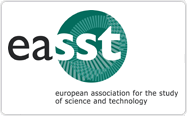Profiles of Malaria Research in Portugal
Organizing, Doing and Thinking in Science Under Capitalism
DOI:
https://doi.org/10.23987/sts.60861Abstract
Synergies between globalization and knowledge economy were suggested to direct biomedical research towards economically-interested activities. In this context, research in malaria, a disease endemic to poverty, may be at a paradoxical stance. This study addresses this issue assessing whether malaria research is driven by the accumulation of economic and/or other forms of capital. Drawing upon academic and epistemic capitalism, malaria research is characterized through the analysis of all Web of science-indexed publications involving Portuguese organizations (1900-2014; n=467). First, data was systematized by content and bibliometric analyses. Subsequently, multiple correspondence analysis revealed a bi-dimensional landscape (who’s publishing; what’s published) and cluster analysis identified three profiles (beginners; local appropriations; global science). This study reveals the construction of Portugal’s scientific system and unveils the assimilation of dominant modes of organizing, doing and thinking despite malaria’s research low profit potential. Extending this approach to other biomedical fields can unravel the dimensions underlying science’s (re)construction.





